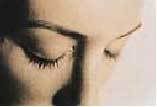Treating Depression
Major types of depression can be deadly but fortunately, for the most part, symptoms of depression can be treated and sufferers can return to their normal daily routine with successful treatment. There are many forms of depression treatment and medication available and the type of treatment used depends on the individual sufferer and the
physical symptoms of depression manifested. The three main types of depression treatment well-established for treating depression are medication, psychotherapy and electro-convulsive therapy (ECT). Sometimes, a combination of these methods are used.
Treating Depression Using Medication
Anti-depressants prescribed to a depression sufferer can take 6 to 12 weeks for the full effects to kick in. Sometimes, patients have to try different doses and types of medication before finding a combination that works for them. Here is where family and friends take notice of the sufferer’s change in disposition as usually the improvement is not apparent to the sufferer. Among the common anti-depressant prescribed are blocking agents that inhibit serotonin uptake and artificially increase serotonin availability in the synapse. In cases where anti-depressants do not work, tricyclic anti-depressants are used.
Some previously effective anti-depressants such as monoamine oxidase inhibitors that work by deactivating enzymes in the brain are no longer used as they are now deemed unsafe to use. While anti-depressants generally work to reduce symptoms of depression, children who are on this treatment should be closely monitored as some studies show a small minority of patients on anti-depressant medication have shown increased suicidal tendencies. It is important for someone
who gets depression to recognize their own patterns of illness and learn ways to deal with them. In addition to taking medication to control signs and symptoms of depression, psychotherapy is another way to dealing with depression and often, a combination of treatment proves to be most effective.
Treating Depression With Psychotherapy
The different types of psychotherapy used to treat signs of depression include cognitive behavioral therapy and interpersonal therapy. Both types of therapies are short-term treatments that last 10 to 20 weeks. Studies in depression diagnosis have shown that mild depression is effectively treated using either medication or psychotherapy alone but in most cases, it is the combination of treatments that severe depression responds to. Cognitive behavioral therapy teaches people to change the behavioral patterns that contribute to depression by changing the negative thinking and behaviour associated with depression. This could be something as simple as taking a short walk everyday.
Interpersonal therapy teaches people to evaluate their interactions with others and to learn how to get along or interact with others to eliminate self-isolation. Improving personal relationships helps reduce instances of depression. Above all, having a supportive family and a network of friends is vital to long-term success in treating and coping with the
physical symptoms of depression.

